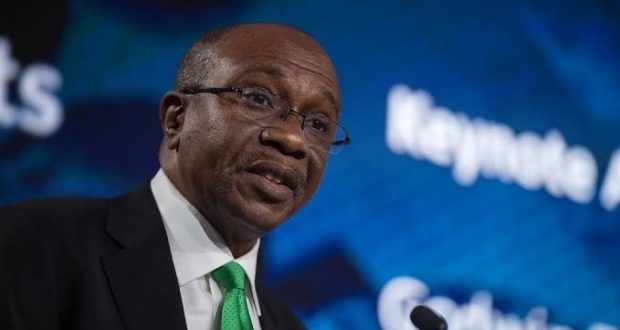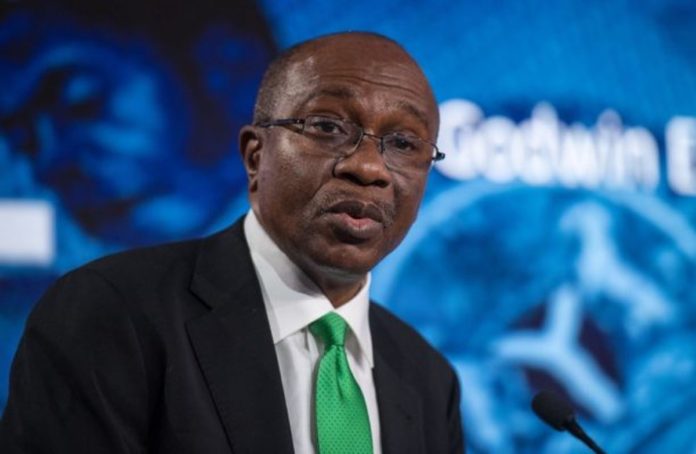CBN Supports Economy With N8.8trn Against Covid-19, Opposes Fresh Lockdown
The Monetary Policy Committee (MPC) of the Central Bank of Nigeria (CBN) rose Tuesday in opposition of another round of lockdown of the economy which will be disastrous for the nation despite the spike in the cases of the second wave of coronavirus that has raised concerns in the country.
The CBN which said it spent over ₦8.8 trillion to support the economy since the advent of COVID-19 in February 2020, noted the country may not survive another “Stay at home” which the previous measure between April and June last year, left the economy reeling and in recession.
The National Coordinator of the Presidential Task Force on Covid-19, Sani Aliyu, had earlier in the month following the record of 1.664 infections on a single day, said the federal government will have no option than to impose fresh lockdown in the country if the rising cases of Covid infection being recorded continue.
“If these numbers continue to go up and we start having significant deaths, we will have no option. If we do not want to lock down, now is the time to make sure that we follow the non-pharmaceutical interventions.”
On 26 January alone, Nigeria Centre For Disease Control (NCDC) disclosed 1,303 fresh cases bringing the total confirmed cases to 124, 299 and 1, 322 deaths. Of the number, 99,276 had been discharged.
The CBN Governor, Godwin Emefiele speaking Tuesday at the end of the first MPC meeting for the year said the economy cannot survive another lockdown considering the outlook for recovery from the previous hit.
“As long as we see that there is a second wave even in Nigeria while we are trying to convene government not to conduct a wholesome lockdown because that is catastrophic on everybody and the economy.
The Committee in discouraging the government against lockdown noted that the COVID-19 pandemic and the necessary measures put in place by the Government to forestall its public health impacts, such as the lockdown and other associated restrictions, contributed to the Nigerian economy going into recession, much like almost every other country in the world.
Members thus agreed that the Committee’s current priority remains to quicken the pace of the recovery through sustained and targeted spending by the fiscal authority supported by the Bank’s interventions.
“We would extend by 12 months again the interest rate of 5 per cent for CBN interventions. It will result in losses for us particularly if we see youths growing up but we think this should be CBN contribution to ensure that interest rates particularly for intervention which are targeted to either household, SMEs, Agric, health sectors ETC, which will stimulate consumer spending”, stated Emefiele who mooted an increase collaboration with the fiscal authority by providing complementary spending to finance productive ventures in a bid to improve aggregate supply and reduce prices.

This will complement the collaboration with the Presidential Task Force on COVID-19 through the existing private sector Coalition against COVID-19 (CACOVID) to procure and distribute vaccines to fast-track the pick-up of business activities and economic recovery.
Available data and forecasts for key macroeconomic variables for the Nigerian economy, according to the committee, suggest further improvement in output growth in the first quarter of 2021.
“This would be supported by the coordinated and sustained interventions of the monetary and fiscal authorities, including the broad-based stimulus and liquidity injections. Inflationary pressure is also expected to commence moderation as the economy’s negative output gap closes. However, underlying uncertainties in the oil market and the current uptick in the second wave COVID-19 infection rate may pose some downside risks to this forecast”.
Emefiele, however in reacting to Fitch rating agency’s criticism of the CBN’s credit to the federal government, frowns at the views of the first-class company and first-class rating agency on the activities of the apex bank regarding the size of credit to the federal government.
“The CBN is a banker to the government, second let it be known that the CBN is a lender of last resort not just to the government but also even to our banks when they run into short term liquidity problems”.
Using other countries and the European Union as examples of entities that extended credits to their governments, Emefiele revealed that “in Nigeria, just 4.5 per cent of the GDP amounting to about $18billion (₦6,822,000,000,000)” was extended as a credit to the federal government to address the COVID-19 challenges.
He said some this money was used to “support measures which included the outright purchase of debt by the Central banks in order to improve the ability of fiscal authorities to fund recovery efforts”.
“The efforts of the central bank are not different that’s the only thing I can say from what is being witnessed in other climes all over the world as we all share the same objective considering both conventional and unconventional measures that will support faster economic recovery in light of reduced revenue reset been faced by this fiscal recovery authorities”.
A synchronized effort by the monetary and fiscal authorities to mitigate the impact of the COVID-19 pandemic has gulped N2 trillion as of January 2021 according to some of the breakdown which includes disbursement of N192.64 billion to 426,016 beneficiaries under the COVID-19 Targeted Credit Facility (TCF) meant for household and small businesses.
A total ₦106.96 billion to 27,956 beneficiaries under the Agri-Business Small and Medium Enterprises Investment Scheme (AGSMEIS), and another ₦72.96 billion to 73 project that comprises 26 pharmaceutical projects and 47 Hospitals and Health Care Services Project in the country from the Health Care Support Intervention Facility.
Others interventions include Creative Industry Financing Initiative and Nigerian Youth Investment Fund amounting to ₦3.12 billion with 320 beneficiaries and ₦268 million with 395 beneficiaries, respectively.
On enhancing power supply, the CBN has so far, provided ₦18.58 billion for the procurement of 347,853 electricity reading meters to Discos in support of the National Mass Metering Programme.
At the end of the meeting, MPC agreed by a unanimous vote to retain the Monetary Policy Rate (MPR) at 11.5 per cent; retain the asymmetric corridor of +100/-700 basis points around the MPR; retain the Cash Reserve Ration (CRR) at 27.5 per cent, and retain the Liquidity Ratio at 30 per cent.



Comments are closed.